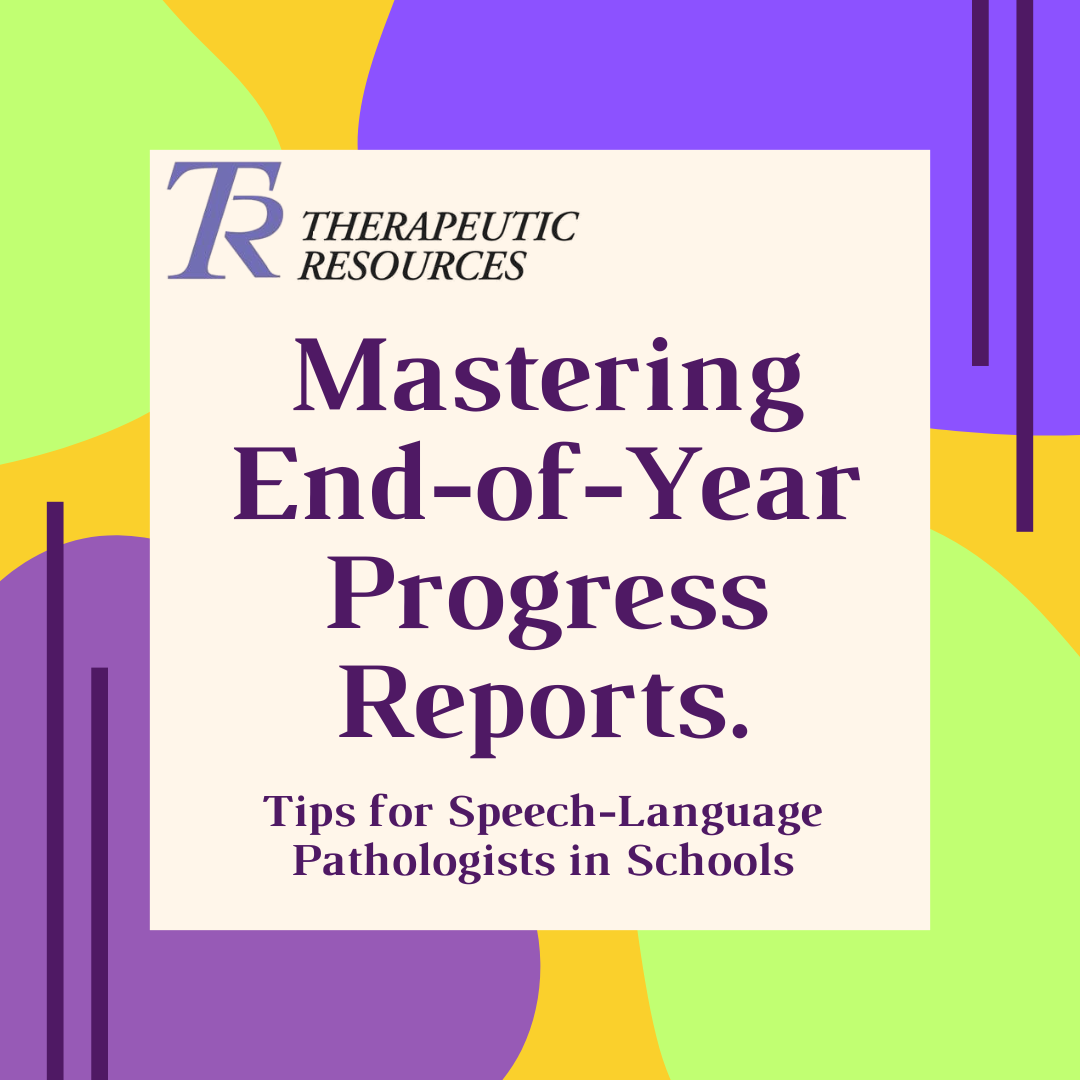« Back to Blog

Mastering End-of-Year Progress Reports: Essential Tips for Speech-Language Pathologists in Schools
June 10, 2024As the school year draws to a close, Speech-Language Pathologists (SLPs) face the important task of writing end-of-year progress reports for their students. These reports are crucial for documenting each student's development, planning future interventions, and communicating effectively with parents, teachers, and others. Crafting clear, comprehensive, and informative progress reports can be challenging, so here are some essential tips to help you excel in this task.
1. Begin with Clear Objectives
Start by revisiting the goals and objectives set at the beginning of the school year. These initial goals should serve as the foundation of your progress report. Clearly state each goal and use them to structure your report, ensuring that your writing remains organized and focused on the student's specific targets.
2. Use Specific, Measurable Data
Quantifiable data is key when reporting on a student's progress. Include specific measurements, test scores, or other quantifiable data illustrating how the student has progressed toward each goal. For example, if a goal was to improve articulation, specify the percentage improvement in sound accuracy compared to the beginning of the year. This data provides clear evidence of progress and sets benchmarks for future goals.
3. Highlight Achievements and Areas for Improvement
Balance your report by highlighting both the student's achievements and areas where they faced challenges. Documenting successes is crucial, but acknowledging difficulties provides a complete picture of the student's performance and helps plan additional support or adjustments needed for the upcoming year.
4. Provide Contextual Information
Context matters. Include background information that may have influenced the student's performance, such as attendance, health status changes, or therapy techniques modifications. This information helps readers understand external factors that may have impacted the student's progress and can inform future interventions.
5. Incorporate Visuals When Appropriate
Graphs, charts, and other visual aids can enhance your progress report by making data more digestible and engaging. Visuals are particularly useful for showing progress trends over time and can complement your written descriptions, providing a clear and concise summary of the student's development.
6. Offer Constructive Recommendations
End your report with actionable recommendations for future therapy interventions, summer activities, or follow-up sessions that might benefit the student. Suggest specific activities or resources that parents and teachers can use to help the student maintain or improve skills during school breaks. These recommendations show your commitment to the student's continuous improvement and provide valuable guidance for other professionals involved in the student's care.
7. Maintain Professionalism and Confidentiality
Always maintain a professional tone throughout the report and present all information respectfully and objectively. Ensure that all data is accurately and ethically reported. Additionally, be mindful of the confidentiality of the information you are handling. Securely store and share reports to protect the privacy of the students and their families.
8. Review and Revise
Before finalizing the report, take the time to review and revise your content. Check for clarity, accuracy, and completeness, and ensure your writing is jargon-free. Having a colleague proofread your report can help catch errors and improve readability.
Writing end-of-year progress reports is a significant responsibility for school-based speech-language pathologists. These reports not only reflect the hard work and achievements of the past school year but also guide future therapeutic directions. By following these tips, you can create effective and informative reports that will aid in the ongoing development of your students and enhance communication with parents and school personnel. Remember, a well-crafted progress report can substantially impact a student's educational journey and ongoing therapy success.
Therapeutic Resources always has cutting-edge positions that will let you contribute and improve your skill set. To explore our innumerable part-time, full-time time and per diem pediatric and adult-based positions, Send us your information here, and a placement manager will be in touch within 24 hours. Talk to you soon!
